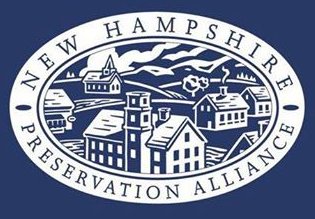Best Practices for Heritage and Historic District Commission: Tips from Community Leaders
Effective communication is the hallmark of successful commissions. Here is some specific advice generated by community leaders in a recent New Hampshire Preservation Alliance gathering.
Organization is key
Track and respond to any preservation-related activities of the selectboard/city council, planning board, zoning board, conservation commission and other municipal entities as appropriate. Divide up responsibility among members to follow on-line postings of agendas and minutes. Cultivate productive relationships with key members of town staff starting with the Town Administrator. Make sure he/she is aware of the powers and mission of Commission. Also develop a good relationship with the town assessor and with the Building Inspector/Code Enforcement Officer.
Be active in the community
Be the commission of “yes.” Support issues and projects before other boards. Offer expertise and networking abilities.
Stay involved
Provide training and support to commission members. [The Preservation Alliance’s handbook, Preserving Community Character, is one place to start.] Embrace leadership succession and filling vacancies as part of annual business. Build a budget with Town support. Hire outside experts when needed such as helping with national and state register nominations, challenging issues like demolition by neglect, forming a local historic district or neighborhood heritage district, or developing planning initiatives in historically sensitive parts of town.
Know your demographic
Target key audiences like new homeowners in a historic district or new owners of historic properties with a “welcome packet.” Similarly, develop community support by offering lively programs geared to local interest, issues or projects of the commission.
Target your community’s unique needs
Find projects that fit the needs of your municipality and the skills and culture of your commission. Keep things like assistance with Master Plans and historic resource survey at the top of your agenda. Advocate for incentives like RSA 79D and RSA 79E. If agriculture is part of your town history, are your current regulations "farm friendly?" Does your town have an ordinance protecting its important stone walls? More here on the Certified Local Government Program and Moose Plate Grant program.
Stay informed
Keep up with sources for helpful arguments on economic impact. Produce quantitative analysis on a specific issue like property values, or draw from state and national studies or people like Tom Mayes at the National Trust. Think about the messenger as well as the message. Preservation Briefs by the National Park Service cover a wide range of topics including mothballing. Adopt language similar to that used for the conservation of land. Have a clear vision of community character and be prepared to argue that preservation of historic structures is a vital part of preserving your community character, those things that make your town/village/city unique.
Thanks to Rebecca Mitchell, Stratham Heritage Commission and N.H. Preservation Alliance Board of Directors, for help with this summary.
Check our our videos on the topic and information on upcoming gatherings.
Don’t forget to support our work with a donation and be sure to follow us on social media!



